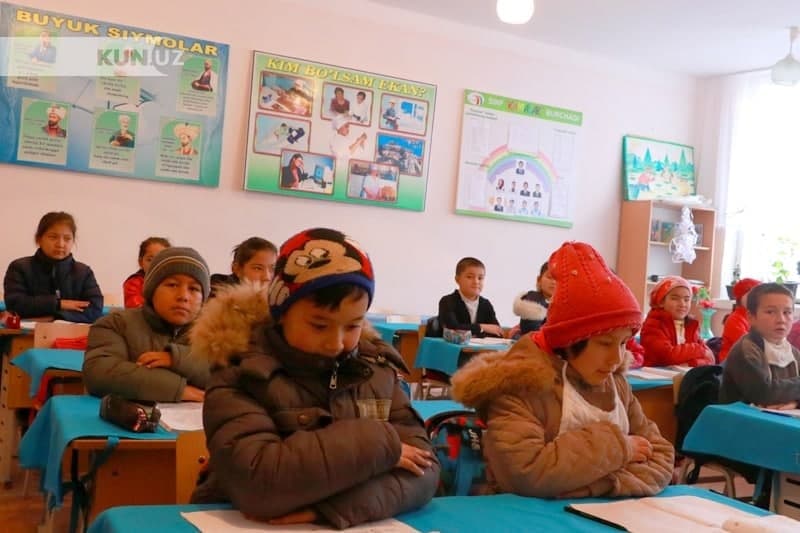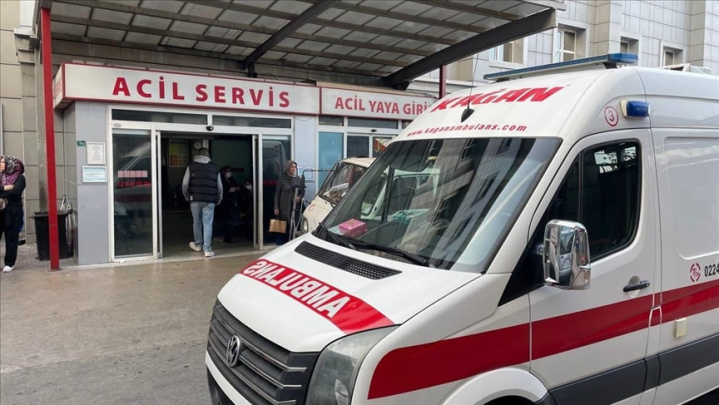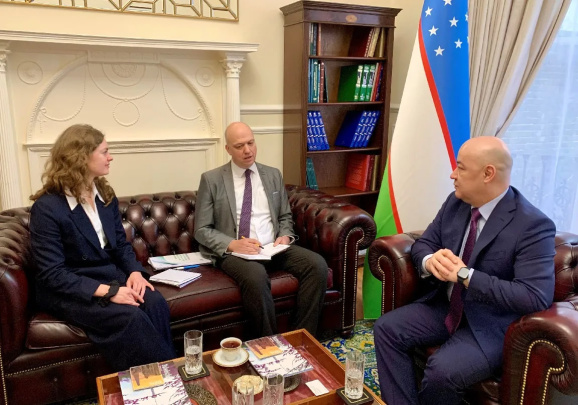A group of Uzbek intellectuals is proposing to change the calendar of the academic year in secondary public schools. The proposal was published on the “Science and Education” Telegram channel, created by the initiators.
According to activists, in many developed countries, the start of the academic year, holidays and the duration of classes are determined mainly based on the educational objectives, organizational issues and climatic conditions.
“A number of inconveniences in the participation of secondary school children, especially primary school pupils, in classes in the autumn-winter period can be significantly eliminated by changing the start and end date of the academic year, the length of holidays and reducing the duration of classes.
The majority of about 10,000 secondary public schools in the country are located in rural areas. Even in the winter days, during the rainy season, pupils, especially primary school children, attend classes walking 3 km-long way every day. As a result, cases of catching cold increases among children. Besides, schools are not connected to central heating systems and the state has to allocate around 80-100 billion soums from the budget to supply means of heating, including coal. This shows how serious is the situation,” the statement reads.
The initiators put forward the following proposals:
• Changing the start of the academic year from September 2 to August 26, and the end date – from May 25 to May 31;
• Introducing winter holidays for schoolchildren from December 25 to February 2 instead of the current holidays on November 4-9, December 28 – January 10, March 21-27;
• In connection with the reduction of summer vacation to two weeks, providing teachers with two weeks of paid leave from 11 to 25 January;
• If short-term leave is considered necessary between the 2nd and 3rd as well as the 4th quarters, establishing a two-day break between quarters due to the transfer of classes on the last day of the 1st and 3rd quarters and the first day of the 2nd and 4th quarters to other academic days in the respective quarters.
According to activists, almost no money is spent on implementing this proposal; on the contrary, it can save several dozens of billions of soums.
“The most important thing is that it will be much easier for students and teachers in the winter.
The practice of changing the length of the academic year, when necessary, is used in developed countries as well, and Canada is an example of this,” the initiative group writes.
It was also noted that despite the different ages and levels of physical development of students, the duration of classes is the same – even in schools that are not equipped with heating or cooling systems on very cold or hot days, where schoolchildren are taught in 2-3 shifts, the length of classes is set at 45 minutes.
Therefore, the followings are being proposed:
• setting the duration of classes for primary schoolchildren at 40 minutes (it is possible to make the start of class time the same in all classes by extending the break time for primary school students by 5 minutes);
• introducing the practice of allowing to reduce the duration of classes to 5 minutes in secondary public schools that are not fully equipped with heating or cooling systems in bad weather (on very hot or cold days), as well as the ones which train pupils in 2-3 shifts with the permission of the district or city public education departments.
With the implementation of these proposals, the following results can be achieved:
• heating and electricity consumption during the autumn-winter period is saved by about 30%; expenditures for these purposes will be reduced by 20-30 billion soums;
• it is possible to increase the educational and spiritual impact of Independence Day, the Day of Remembrance of the First President and the Day of Knowledge, which fall on the same day;
• facilities will be created for students, especially primary school children;
• the labor costs of primary school teachers will be reduced by about 10%;
• there will be additional opportunities for teachers to take time off and to self-study even in the middle of the academic year;
• additional opportunities will be created for students and managers of educational institutions to implement the program of domestic tourism development “Travel around Uzbekistan” established by the presidential decree.
It is noted that the proposal has also been posted on the public portal “Mening Fikrim” (“My Opinion”). The issue of publishing the proposal on the portal will be decided by moderators.






